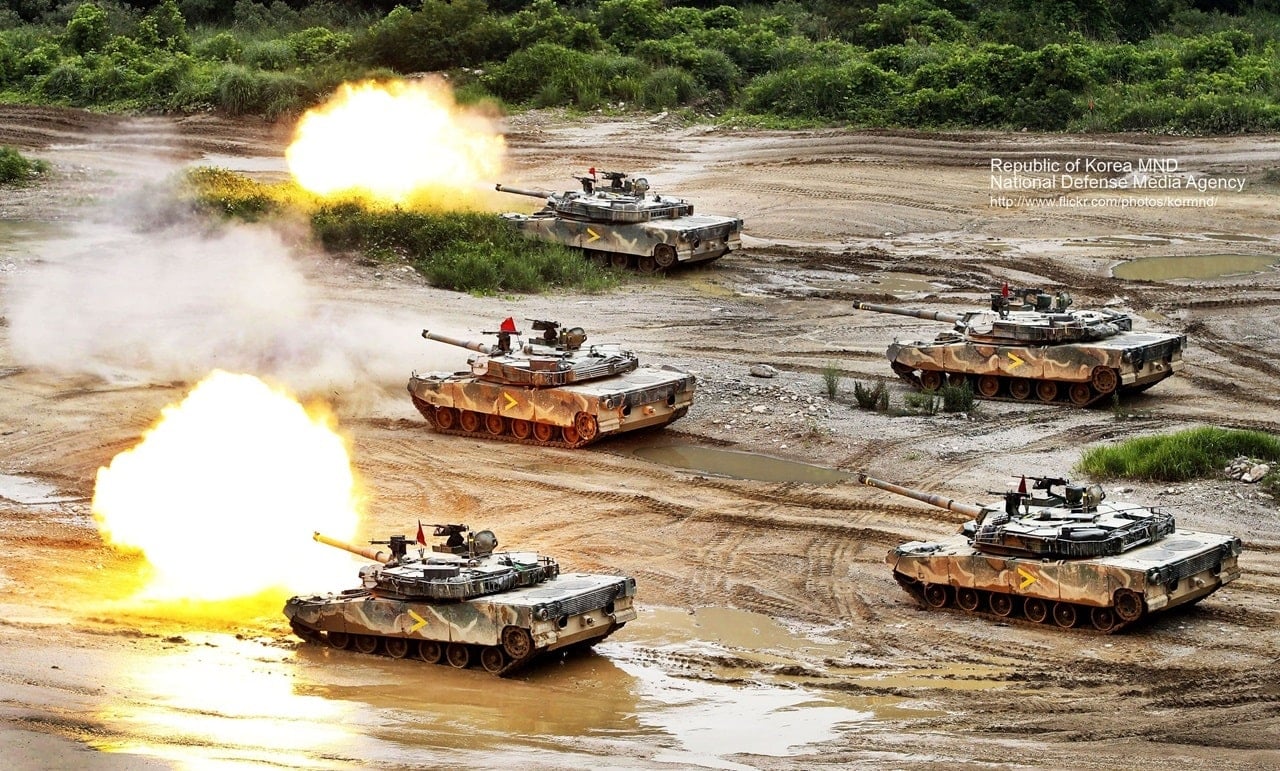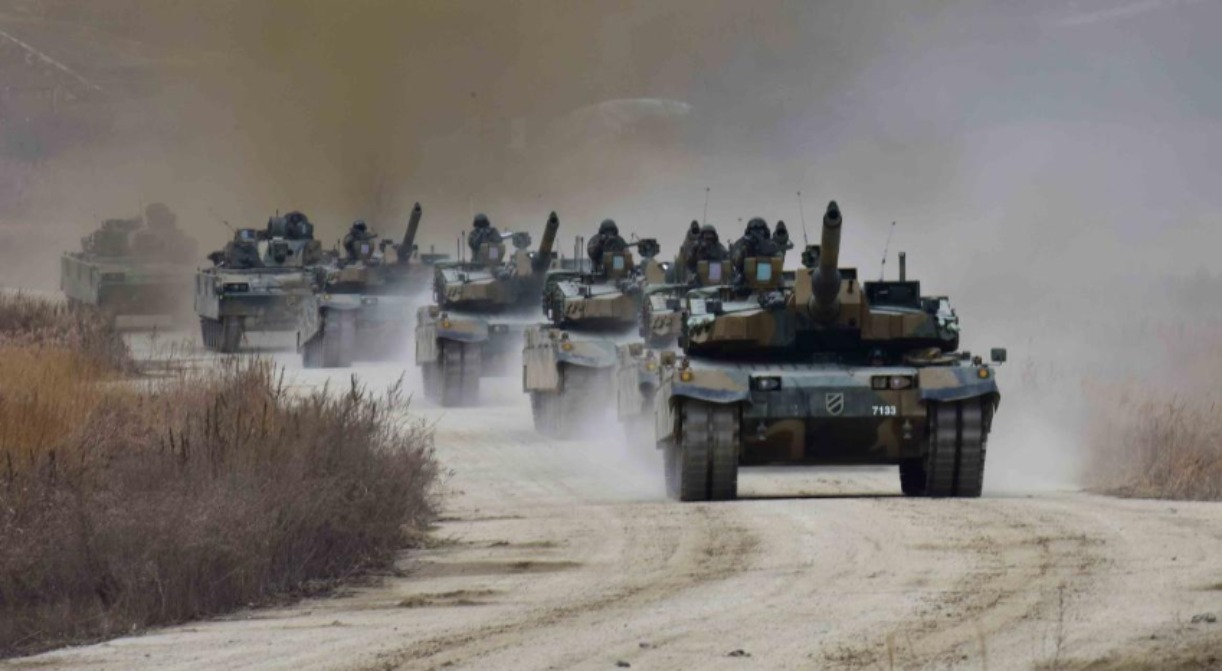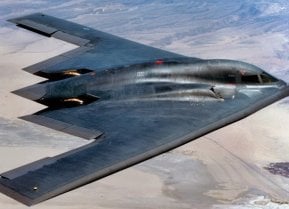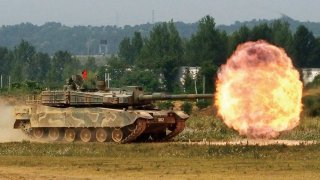Has North Korea Really Decided to Go to War?
In 2024, Kim Jong-un seems likely to escalate because of serious internal problems and because his Cold War approach of provocations has failed to achieve his external objectives.
On January 10, North Korean leader Kim Jong-un abandoned decades of seeking peaceful Korean unification. He “called South Korea the country’s ‘principal enemy’ and said he has ‘no intention of avoiding war.’” He further said, “he would have no hesitation in ‘annihilating’ South Korea,” which sounds like Kim is preparing for a major nuclear weapon attack on the South.
Subsequently, two renowned experts on North Korea wrote an article arguing that “Kim Jong-un has made a strategic decision to go to war.” In the subsequent debate, others maintained this is not the case.
So, has Kim really decided to go to war?
To answer this question properly, we must first distinguish between kinds of war. In fact, Kim already has gone to war: The Kim Family has been preparing for and fighting a cold war against South Korea and the United States for seventy years. This can be seen in the North’s propaganda operations against the South, its identifying the United States and South Korea as hostile enemies that seek to invade the North, its many provocations, including its missile and nuclear weapon tests, and its inflammatory threats.
Of course, Kim uses these actions to help his failing regime survive. He diverts the attention of his people from his regime’s many failings and seeks the appearance of an empowered and successful leader. These actions also allow him to apply pressure on the South Korea-U.S. alliance with the hope of undermining it.
And Kim is clearly preparing for a hot war: “Every country’s military prepares for war.” But in particular, no dictatorship can have a military of over 1 million personnel and not have them actively preparing for war. They must be kept busy, or they would be very dangerous to the regime. Indeed, Kim not only threatened to annihilate the South but also had plans to go further by “occupying, subjugating and reclaiming the ROK and annex[ing] it as a part of the territory of our Republic.”

This kind of hot war is what many experts currently fear. But it is not something Kim likely wants to happen. After all, he knows that if he uses nuclear weapons, the United States has promised that his regime will not survive, which is the outcome he fears most. And if his army invades South Korea, his personnel will suffer the kind of ideological contamination from outside information that he fears could lead his regime to collapse. Indeed, a National Intelligence Estimate (NIE) extract released in June 2023 significantly discounts such North Korean offensive activity.
Still, Kim fears the fate of Romania’s communist regime, which was overthrown by its own military in 1989 (his grandfather Kim Il-Sung was close with President Nicolae Ceaușescu). If he ever perceives that his military may act against him, Kim could well order an invasion of the South to keep his military occupied. The NIE extract says: “The [intelligence community] continues to assess that North Korea is unlikely to use nuclear weapons unless Kim believes his regime is in peril.” Kim presumably wants a regime survival contingency in which his military is adequately prepared to avoid overwhelming defeat if executing such an invasion, including the potential use of nuclear weapons.
But there is a third kind of war that might be referred to as a “warm war” involving periodic limited attacks intended to coerce or destabilize an adversary. Historically, North Korea has practiced such limited attacks, including the use of insurgents who tried to incite civil war in the South in the late 1960s. The North’s special force unit infiltrated the South and tried to kill South Korean president Park Chung-hee in 1968. The North also seized the USS Pueblo in 1968, killed two U.S. officers at Panmunjom in 1976, attempted to assassinate the South’s president with a bombing in Burma in 1983, attacked South Korean ships in the 1990s and 2000s, and shelled Yeonpyeong Island in 2010.
In 2024, Kim seems likely to escalate to a warm war because of serious internal problems and because his Cold War approach of provocations has failed to achieve his external objectives. Instead of undermining the South Korea-U.S. alliance, his provocations in the last few years have reportedly made the alliance stronger than ever and brought Japan into a trilateral partnership. The external outcome of Kim’s strategy could hardly have been worse, and his senior leaders likely know that. But Kim can’t admit to that failure—he seems more likely to double down and escalate to warm war, as his grandfather did in the late 1960s.

Of course, Kim will not admit to any specifics of a warm war strategy. “The element of surprise traditionally has been a crucial element of North Korea’s provocations,” and likely will remain such. But it seems quite probable that Kim will carry out a campaign of limited attacks, at least some of which will be plausibly deniable because he learned in 2010 that the sinking of the Cheonan warship exposed the North to far less risk than the shelling of Yeonpyeong Island. The NIE extract also says: “North Korean leader Kim Jong-un most likely will employ a variety of coercive methods and threats of aggression to try to make progress toward achieving his national security priorities.” As another expert warns: “But he may now feel he can dominate inter-Korean relations, drive wedges in the U.S.-South Korean alliance, and engage in increasingly aggressive provocations. And he may become dangerously overconfident in his ability to control the risks of escalation.”
That is dangerous because South Korean president Yoon Suk-yeol has promised to “punish” North Korea disproportionately should it decide to provoke the South. If that happens, North Korean internal instability might compel Kim to pursue an escalation spiral, anticipating that his “nuclear shadow” will constrain South Korean and U.S. responses. But he could well be catastrophically wrong.
South Korea and the United States thus need to be prepared to defeat any such North Korean attacks. While they have tended to depend upon retaliatory threats to deter North Korean limited attacks, they need to focus more effort on having the capabilities and plans to defeat North Korean limited attacks and then demonstrating their preparedness.
For example, while North Korea argues that its missiles can defeat South Korean and U.S. defenses, Ukraine has been very successful in intercepting a significant percentage of Russian missile attacks using U.S. and allied defenses, even against theoretically “unstoppable” Russian hypersonic missiles. South Korea and the United States need to be prepared to deny as many as possible North Korean attacks. After all, when facing internal instability, the last thing Kim wants is to launch unsuccessful attacks against the South and thereby appear weak. In this case, deterrence is much more dependent on denial, which is less likely to prompt North Korean escalation than retaliation.
In addition, South Korea and the United States need to exploit the key North Korean asymmetric vulnerability: outside information. Instead of just threatening retaliatory attacks against the North, they should also threaten a campaign of external information against the North that Kim would fear. Such a campaign could focus both on delivering information to the elite North Koreans working outside the country (including in Russia) and on sending radio, television, and other media (e.g., USB drives) into the North.
And while the North refuses to negotiate with the United States, the United States needs to remember that diplomacy does not need to start at a negotiating table. Why can’t Washington offer a proposal for lessening tensions with North Korea and providing benefits for which most North Koreans are desperate? For example, the United States could offer the North a monthly package of food and medical aid in exchange for no provocations. Even though Kim would almost certainly reject such a proposal, his elites might find it very attractive and put pressure on him. By not just taking a hardline against North Korean provocations, the United States would demonstrate to its allies and the North Koreans that it isn’t hostile toward the North Koreans—only against North Korea’s bad behavior.
About the Author: Dr. Bruce W. Bennett
Bruce W. Bennett is a senior international/defense researcher at the nonprofit, nonpartisan RAND Corporation. He works primarily on research topics such as strategy, force planning, and counterproliferation within the RAND International Security and Defense Policy Center.
Image Credit: ROK Government.


